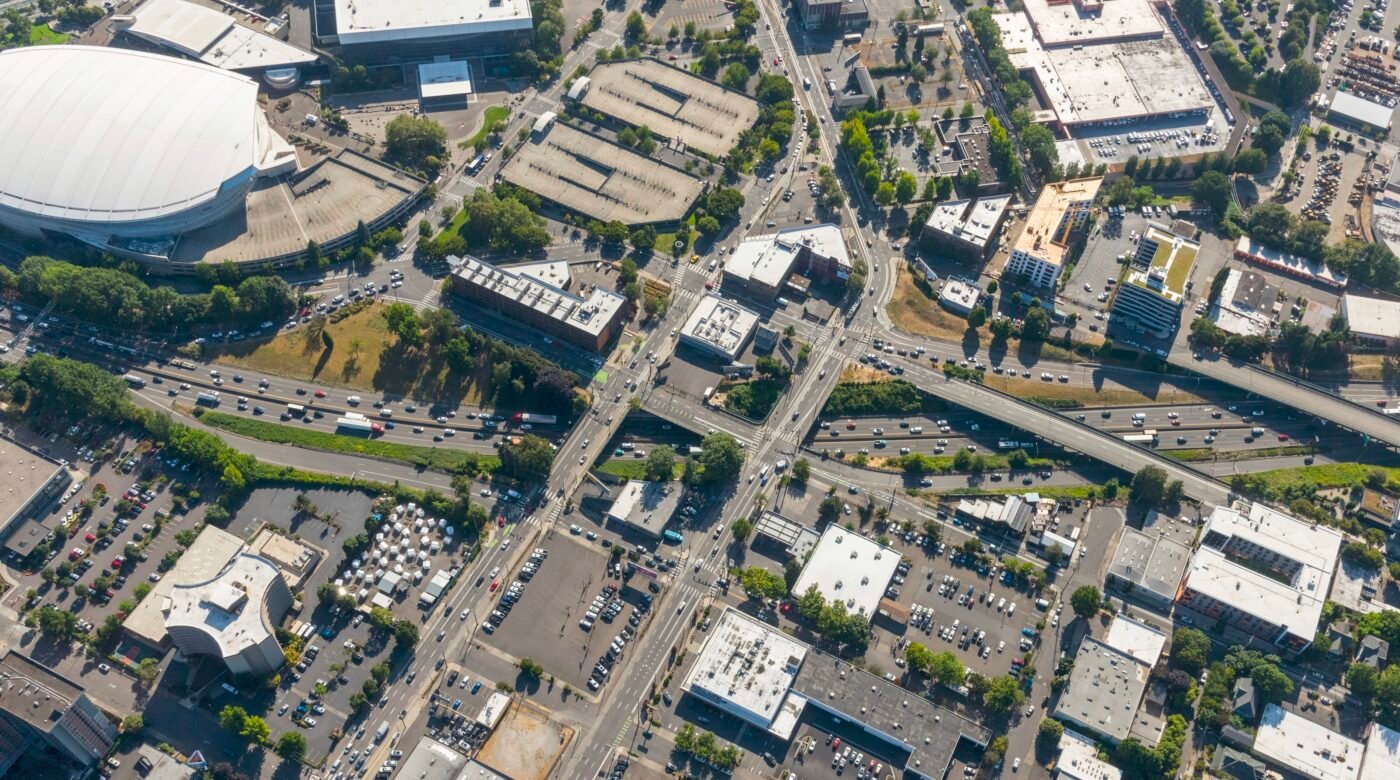
Earlier this month I reported that the Oregon Department of Transportation was on the brink of putting shovels in the ground on their I-5 Rose Quarter project, despite a massive hole in their budget made even worse by a new edict from the Trump Administration that had frozen a key $450 million grant.
Now it appears ODOT’s luck has shifted.
At a meeting today, Rose Quarter Project Director Megan Channell said they’ve received word from the Federal Highway Administration that they can move forward with processing grant funds. We still don’t know if the Trump administration will honor the grant and send the rest of the funding to ODOT, but Channell framed the news to Metro councilors as “big news.”
In order to keep construction moving forward, ODOT is highly reliant on a $450 million Reconnecting Communities grant they won from the Biden Administration. But as of early February, ODOT said just $37 million of that total had been obligated, leaving over $400 million up in the air due to the Trump administration’s executive order pausing all discretionary transportation grants. That amount, combined with being already about $1 billion short on the $1.9 billion megaproject, put ODOT in a precarious situation.
This morning, Channell shared an update with Metro Council where a separate allocation of $250 million for the I-5 Rose Quarter project was being discussed. During her presentation, Channell shared the “big news” on the separate $450 million federal grant.
“As of last week we did get notice that because we have a signed grant agreement, and because we have a portion of those funds already obligated, we can continue to proceed in the obligation of the remaining phases of that grant,” Channell said. “So that’s big news to be able to keep moving forward,” she continued.
“And I will say, hours after we got that notice, we put in our obligation request,” Channell added, as she and several councilors broke into happy laughter.
Upon hearing that news, Metro Councilor Duncan Hwang asked Channell, “So there’s less uncertainty, but still uncertainty?” To which she replied, “I’d say there’s substantially less uncertainty, but there still remains some risk.”
Part of that risk comes from the fact that the Reconnecting Communities grant in question is funded to ODOT on a reimbursement basis. That means ODOT will spend state money to get work done, and then ask FHWA for a reimbursement. Given Trump’s unpredictable policymaking and his disdain for Portland and projects like this one that have centered racial justice, there’s no guarantee the grant agreement or the reimbursements will be honored.
Channell made it clear at Thursday’s Metro meeting that if the Reconnecting Communities grant does not come through, ODOT would need to change the scope of the project.
ODOT Director of Finance Travis Brouwer told BikePortland today that last week they learned the Federal Highway Administration has begun processing obligations for projects with signed agreements (ODOT learned this in conversation among federal and state staff, there was no written communication of the new direction). ODOT has received this go-ahead from FHWA because they already signed a grant agreement and have obligated $37 million toward design of the project. “In response, we are working with FHWA to obligate the remaining grant agreement funds for right of way and construction,” Brouwer said.
This Reconnecting Communities grant funding will allow ODOT to build Phase 1 of the project, which is about 30% of the highway cover and the initial phases of the freeway expansion, including new northbound and southbound lanes. The portion of the highway lid they plan to build first is the southern portion (which is considered the most complicated) near the Broadway and Weidler couplet. ODOT hopes to begin construction on Phase 1 in 2027. Phase 1A of the project, which includes stormwater facility upgrades and bridge preservation work, is scheduled to begin this year.
At the same meeting, Metro councilors heard strong support and opposition to the I-5 project. Many backers of the project, including a representative from Albina Vision Trust, spoke about the deep engagement work ODOT has done with the community and the organization’s strong desire to build the entire project (not just the freeway lane expansion).
Metro plans to take an official vote on this latest funding allocation at their meeting on April 1st.



